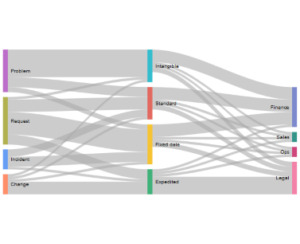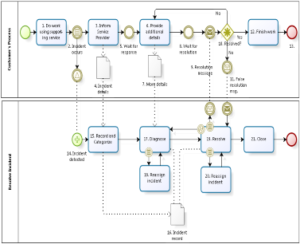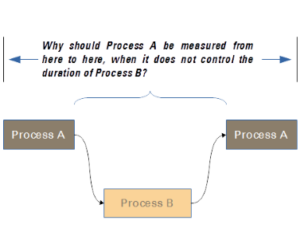The Agile Manifesto has borne not just fruit, but complete orchards and plantations. But as we know, that document intended to be a manifesto for agile software development. Let us examine how that manifesto may be adapted for service management. What would a Manifesto for Service Management Agility be?1 The Manifesto for Agile Software Development […]
kanban
Lean configuration management: a conundrum
How does a purely internal activity like configuration management add value to customers? Would a customer gladly pay you for your configuration management activities? Keeping your configurations under control is hardly value adding in the same way as, for example, increasing the utility of a service. And yet, good configuration management underpins virtually all service […]
10 Kanban Misconceptions
When I ask people what they think about kanban, why they do not use it or why they show little interest in learning about it, I sometimes receive surprising answers. Clearly, there are many misunderstandings about kanban, many misconceptions about what it is, how it works, who can use it and what its benefits are. […]
If you don’t have time for kanban training, you need kanban training
I recently asked people why they do not take kanban training. Many of them said they simply don’t have the time for it. Well, that is a strong indicator that they really need to use a time-saving method like kanban. Let me explain why you truly do have the time for kanban training and why […]
Using Sankey diagrams for kanban
A Sankey diagram is used to provide a visual analysis of flows. While it might be most commonly used to display the flow of materials through a distribution system, such as petroleum and its derived products, Sankey diagrams are well adapted to provide visual analysis of the flow of any type of work. Thus, they […]
How can a Marey chart help analyze the flow of work?
The type of diagram called a Marey chart might be more than a century old, but it can be a useful new addition to the arsenal of tools at the disposal of lean and kanban practitioners. What is a Marey chart? A Marey chart is commonly used to analyze transportation systems. It displays the times […]
BPMN & service management
BPMN: a step toward automation I have argued elsewhere that the typical service management tools in use today might be suitable for service desk agents, but are annoying, redundant and of little value to anyone else involved in resolving incidents, among other activities. I have further proposed that existing IT management should be leveraged to […]
Three process architecture principles
My experience with process architecture principles Over the years, my advice to clients seeking to improve how they work has been underpinned by a set of implicit process architecture principles. I would like to share them here and explain my reasoning behind them.







